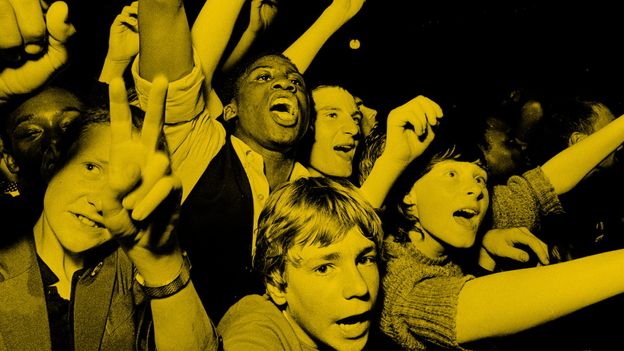White Riot: the music activists who took on racism – BBC News


The RAR movement would involve numerous anti-fascist benefit gigs (including a response to the 1979 Southall race riots, where police clashed with anti-National Front protesters, resulting in mass injuries, and the death of teacher Blair Peach), and further carnival events, in London, Manchester and Leeds (where the final all-dayer was held in 1981, including The Specials, Aswad and Misty In Roots). Its ethos (and characteristically direct slogans – such as “Black and White Unite and Fight”) would forge connections and champion equality.
“In the ’70s, we were very much fighting in different battlegrounds; there was the Bradford Asian Youth, and the Southhall Asian Youth, the white punks, Birmingham Afro-Caribbean groups… we tried to bridge that gap, to a certain extent,” says Huddle. “I think we proved a point that the fight against racism is in everybody’s interests. Racism is the most pernicious damage used to divide us; everything is about the continuing campaign against racism – I think you can see it in the Black Lives Matter movement, and the culture that stems from these periods of conscious protest.”
“I fail to see why there is racism at all, given we’re in the 21st Century, and mankind should have progressed beyond racism, but it rears its ugly head now and again, as a reminder that we’ve got to be vigilant,” says Bovell. “All the groups made RAR what it was, there was a big contribution from all genres of music, and it showed the public and the press that there are people who are against racism, and unafraid to say so.”